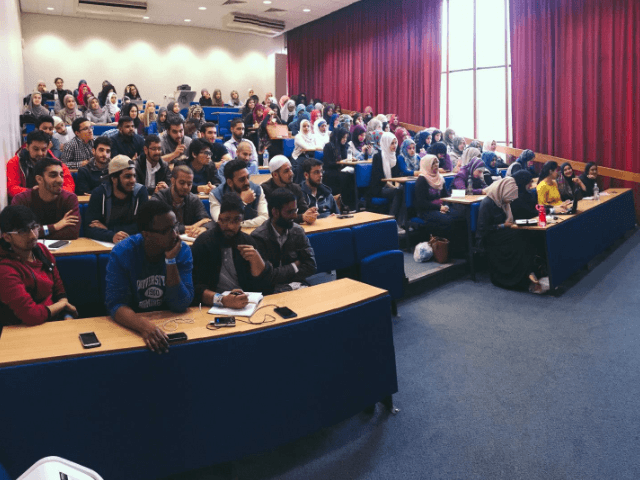University lecturers and teachers have been slammed for resisting the anti-terror measures and insisting they have no duty to report student’s being drawn into violent extremism.
Lord Carlile of Berriew, QC, said that shop workers and cleaners in airports were happy to report suspicious and potentially dangerous people, and questioned why the educational establishment was so opposed to doing so.
The University and College Union, which represents lecturers, and the National Association of Schoolmasters and Union of Women Teachers, all oppose a law requiring universities and schools to refer students to the Prevent de-radicalization programme.
The National Union of Teachers (NUT) has called for it to be scrapped and the National Union of Students (NUS) says it is “racist” and has worked with Islamists to organise workshops instructing students how to “resist” it.
“Academics at some universities see it as an outrage to academic freedom to report students, some of them sophisticated postgraduate students, who display in their written work ideation towards so-called Islamic State terrorism.
“Why is it people in Gatwick airport are more responsible than some, and I emphasise some, teachers and others who encounter ideation of the kind I described?” Lord Carlile, a former independent reviewer of terrorism, asked at the World Counter Terror Congress, according to The Times.
Prevent has reportedly helped stop numerous terrorists, France and Germany are planning similar schemes, and a large and growing proportion of those targeted are “far right”.
Despite this, it is almost unanimously opposed by Muslim lobby groups and has been attacked by some in government and international rights groups for supposedly targeted Muslims.
The Home Affairs Select Committee described it as “toxic” and discriminatory towards Muslims and the United Nations’ (UN) special rapporteur on the right to freedom of assembly claimed it created a “spectre of Big Brother”.
Lord Carlile, 69, added: “Those who are opposed to the law that has now passed… need to reflect upon the fact that a significant part of the valuable information given to the police comes from the families of those who see themselves as being radicalised and who [may] take part in terrorism.
“That is something that has not always been recognised by parliamentarians when dealing with counter- terrorism legislation.”

COMMENTS
Please let us know if you're having issues with commenting.